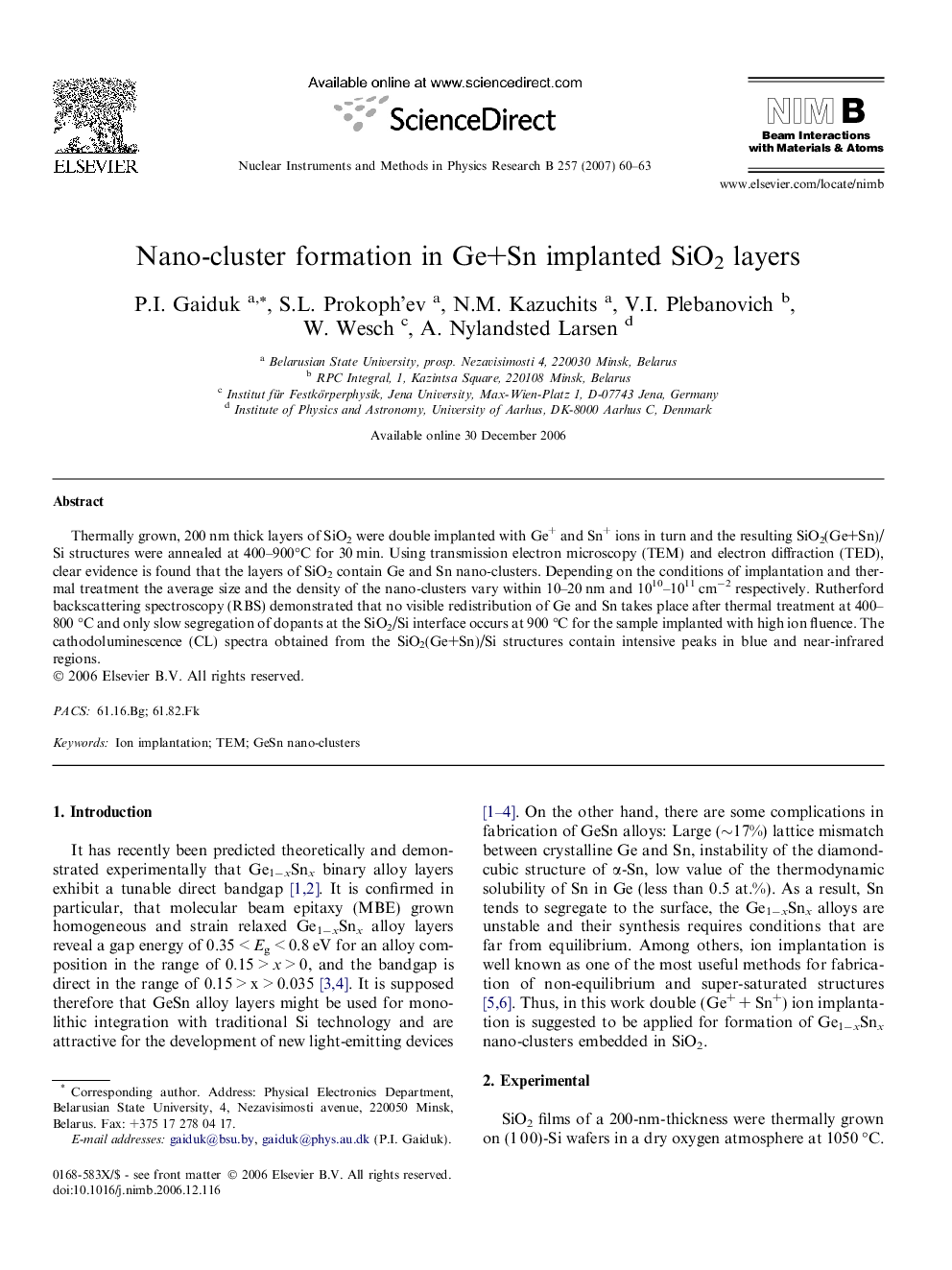| Article ID | Journal | Published Year | Pages | File Type |
|---|---|---|---|---|
| 1684735 | Nuclear Instruments and Methods in Physics Research Section B: Beam Interactions with Materials and Atoms | 2007 | 4 Pages |
Abstract
Thermally grown, 200 nm thick layers of SiO2 were double implanted with Ge+ and Sn+ ions in turn and the resulting SiO2(Ge+Sn)/Si structures were annealed at 400-900°C for 30 min. Using transmission electron microscopy (TEM) and electron diffraction (TED), clear evidence is found that the layers of SiO2 contain Ge and Sn nano-clusters. Depending on the conditions of implantation and thermal treatment the average size and the density of the nano-clusters vary within 10-20 nm and 1010-1011 cmâ2 respectively. Rutherford backscattering spectroscopy (RBS) demonstrated that no visible redistribution of Ge and Sn takes place after thermal treatment at 400-800 °C and only slow segregation of dopants at the SiO2/Si interface occurs at 900 °C for the sample implanted with high ion fluence. The cathodoluminescence (CL) spectra obtained from the SiO2(Ge+Sn)/Si structures contain intensive peaks in blue and near-infrared regions.
Keywords
Related Topics
Physical Sciences and Engineering
Materials Science
Surfaces, Coatings and Films
Authors
P.I. Gaiduk, S.L. Prokoph'ev, N.M. Kazuchits, V.I. Plebanovich, W. Wesch, A. Nylandsted Larsen,
